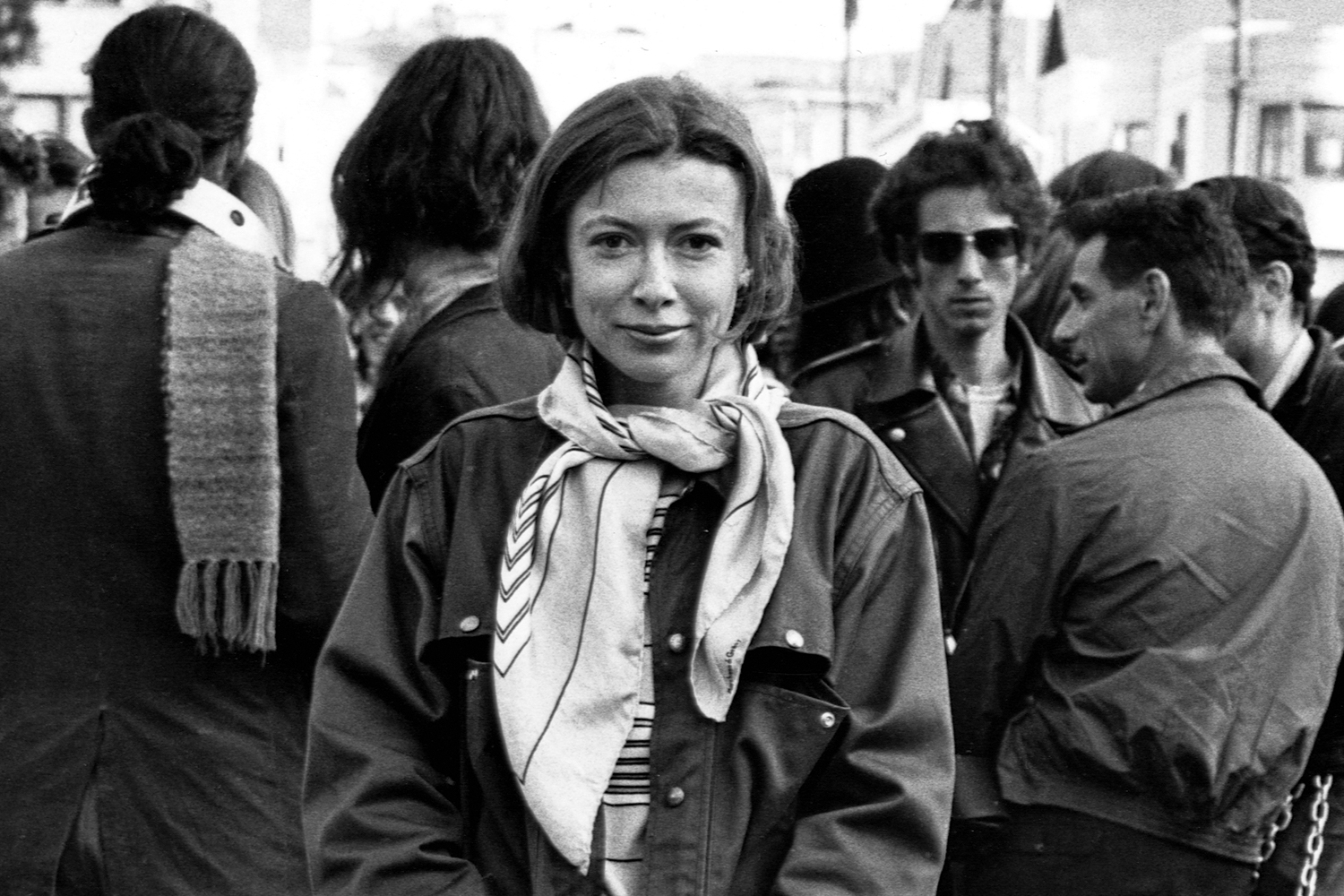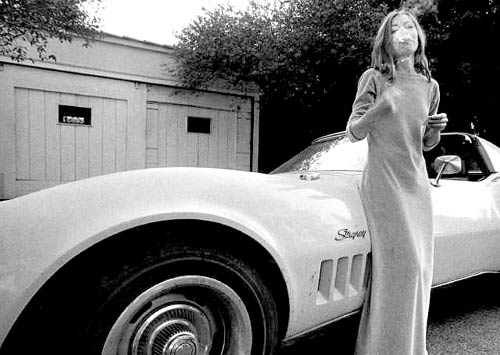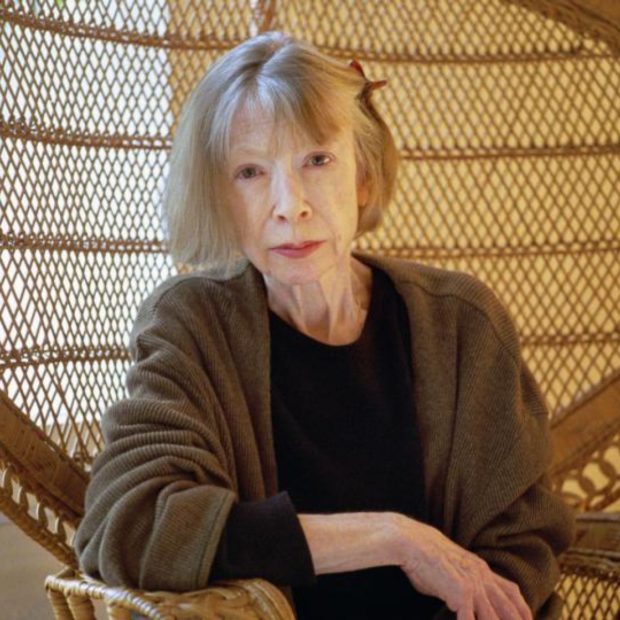Towards Bethlehem: Joan Didion
In the article, “Slouching Towards Bethlehem,” she captured the kaleidoscopic, off-kilter psychedelia of San Francisco’s hippies in the ’60s. It began: “The center was not holding.” In the title essay of her collection, The White Album (1979), she disclosed a psychological evaluation she’d had that year describing “a personality in process of deterioration,” and in The Year of Magical Thinking (2005), she writes about her own centre not holding.

When Joan Didion died two days before Christmas, 2021, I thought about how often I’d absorbed her prose and, most of all, her thinking, whether it was reportage, political or cultural commentary, or memoir. The Year of Magical Thinking is, I think, her masterpiece, a multilayered exploration of grief, a desperate, yet at the same time clinical, effort to come to terms with the sudden death, by heart attack, of her husband, the writer John Gregory Dunne, in 2003, at a time when their daughter, Quintana Roo, was suffering from a serious illness that would kill her two years later. The writing is so unflinchingly raw and clearly-written that it’s hard not to read it without a lump in one’s throat.
“I know why we try to keep the dead alive,” she wrote. “In order to keep them with us. I also know that if we are to live ourselves, there comes a point at which we must relinquish the dead, let them go, keep them dead. Let them become the photographs on the table.”

Have you seen picures of her? Whether when she was young, waif-like, posing in front of her Corvette, or older, with her wrinkles and her silver-grey hair, she always looked tiny and fragile except for those penetrating eyes. She talked about her physical appearance and manner as allowing her to blend into the background as a journalist. “My only advantage as a reporter,” she wrote in the preface to Souching Towards Bethlehem, “is that I am so physically small, so temperamentally unobtrusive, and so neurotically inarticulate that people tend to forget that my presence runs counter to their best interests. And it always does. That is one last thing to remember: writers are always selling somebody out.“
It’s not hard to make a list of well-known writers influenced by her: Susan Orlean, Meghan Daum, Elizabeth Kolbert, Kate Roiphe, Zoe Heller… Whether it’s a self-referential style, a love of dreamy digressions, or a penchant for breaking down the day’s news into the eccentric mess that it usually is, Didion’s stamp is easily spotted.

For Didion, writing wasn’t a passive act. In her essay, “Why I Write,” which she breezily admitted she stole from Orwell, she wrote: “In many ways writing is the act of saying I, of imposing oneself upon other people, of saying listen to me, see it my way, change your mind. It’s an aggressive, even a hostile act.